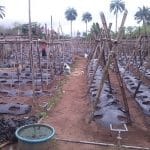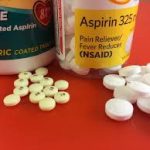Insecticides are used by crop farmers to control insect pests that attack crops. It is a well-known fact that world-wide, some insecticides are losing their effectiveness due to insecticide resistance – i.e. some insecticides no longer kill insects they’re meant to kill. US farmers lost 7% of their crops to pests in the 1940s. Over the 1980s and 1990s, the loss was 13% even though more pesticides (including insecticides) were being used. There are several factors that can cause this but we won’t be considering them here. Rather, we’ll learn how to control pests in such a way that prevents/minimizes insecticide resistance from occurring.
Why is Insecticide Resistance so Bad?
The word tuta absoluta will continue to strike terror into the hearts of tomato farmers. It is a moth – a flying insect that can cause 100% yield loss in tomato farms. Farmers tried to kill these little insects with
>>>>>> [Read more…] <<<<<<


